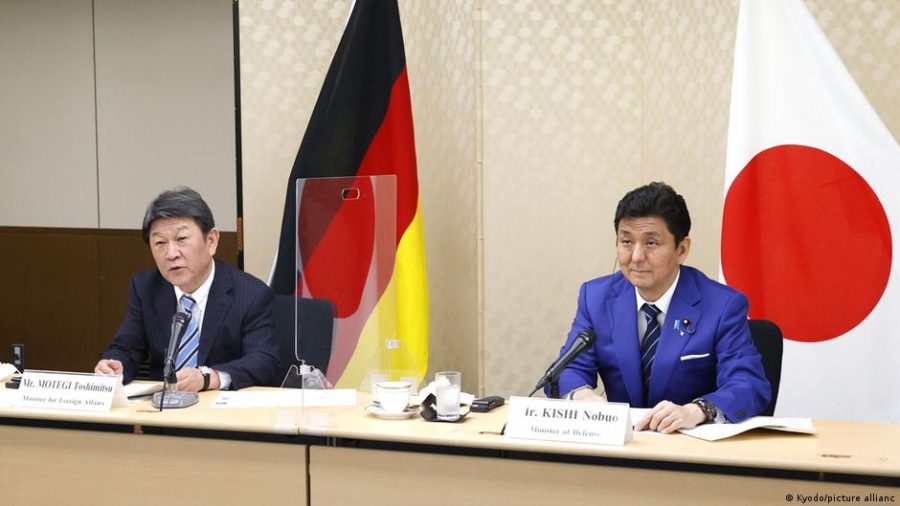Return of the axis? Ukraine war may forge new Germany and Japan
The idea of adding more nuclear weapons inside former world war enemy countries seems maddening. However, as a result of Russian invading Ukraine and North Korea’s development and the threat of using nuclear weapons, now may be the time to put nuclear weapons on German soil and Japanese soil, not as offensive weapons but as deterrents to such threats.
Russia’s invasion of Ukraine, which began the worst war on European soil since World War II, quickly descended into threats to use nuclear weapons against any country that interfered with the Russian military. Why? President Putin underestimated not only the resolve of the Ukrainian people to defend their homeland, but also he overestimated the ability of the Russian military to quickly conquer Ukraine and ‘decapitate’ the central government. As a result of Russia’s invasion of Ukraine, both Germany and Japan have for the first time since the second world war been awakened to the reality of their hard power in their respective regions.
The weakness of the United Nations became more apparent when one of the nine-member countries on the United Nations Security Council invaded a neighboring country without provocation and with the intent to occupy and annex all or part of Ukraine. As a result, only the NATO alliance seems capable of deterring such Russian aggression that appears to be an unending annexation of other countries. However, in this seemingly inevitable new world order, a third country has threatened to use its nuclear weapons – Russia.
When President Putin threatened to use nuclear weapons against any country that interferes with his “special operation,” Russia joined the ranks of Iran, China, and North Korea as countries that have threatened to use nuclear weapons against any country deemed an enemy of their state – especially the West and the U.S. The only counter to such threats of nuclear annihilation might be the proportional counter-response as a deterrent. Now may well be the time to put nuclear weapons on German soil to counter Russia’s threat to use nuclear weapons against NATO, and on Japanese soil to counter both China and North Korea’s regional aggression.
One way to accomplish this would be to rewrite the Treaty Of Paris (the Allies/Germany) and the Treaty Of San Francisco (the U.S./Japan) to allow both Germany and Japan to have nuclear weapons on their respective soil. The use of a submarine base to harbor nuclear-capable U.S. submarines, one in Germany and one in Japan, would be the simplest way to counter such threats from Russia, China, and North Korea.
A second counter-measure would be to organize a southeastern Pacific alliance similar to NATO (Japan is already a member of NATO), to include the mutual defense treaties already in place between the U.S. and Australia, South Korea, and Taiwan. Referring to such an alliance of mutual defense could be called the Southeast Pacific Treaty Organization (or SEPTO). Note: PTO has already been taken as an abbreviation. Anytime any country develops nuclear weapons in violation of UN resolutions and international law, the only countermeasure or deterrent becomes the proliferation of nuclear weapons in close proximity to the threatening country. This smacks of the expression, “don’t bring a knife to a gunfight.” There must be consequences for rogue nations’ provocations that threaten their neighbors and that destabilize the region.
Parking nuclear-armed U.S. submarines that operate from U.S. Navy bases in Japan and in Germany would undoubtedly infuriate China and Russia respectively. Restricted to act as only defensive weapons to counter the perceived or actual threat to use nuclear weapons might well be the only and best countermeasure to the use of nuclear weapons. Such “defensive” nuclear weapons could be mutually removed from both countries as a de-escalation of such weaponry. Despite the terrible power of the atomic bomb, it may very well be the last tool the west and the United States have left to put a swift end to the spread of authoritarian influence globally.








